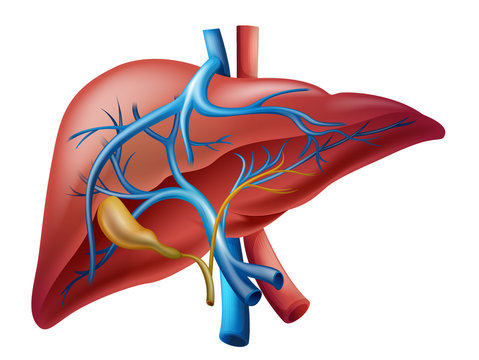The liver is one of the most vital organs in the human body, playing a critical role in maintaining overall health and well-being. Located in the upper right quadrant of the abdomen, beneath the diaphragm, the liver performs a variety of essential functions that are crucial for survival. Understanding the importance of the liver can help us appreciate its role and encourage us to take better care of this remarkable organ.
Control of Metabolism
A vital component of the body’s metabolism is the liver. It transforms nutrients taken up from the digestive system into components that are vital to the blood. It ensures that the organism has a constant supply of energy by metabolizing proteins, lipids, and carbs. Furthermore, the liver stores glucose as glycogen, which it can then release into the bloodstream when the body requires an increase in energy.
Exhaustion
Detoxification is one of the liver’s most important roles. Before blood from the digestive tract is sent to the remainder of the body, it is filtered by it. To make toxic substances less dangerous and ready for elimination, the liver metabolizes medications and detoxifies chemicals. The body is shielded from potentially dangerous compounds by this detoxification process, which we might swallow or breathe in.
Production of Bile
Bile, which is produced by the liver, is necessary for the breakdown and assimilation of lipids. The gallbladder holds bile, which is then discharged into the small intestine when required. Our bodies would find it difficult to process and absorb fat-soluble vitamins and other nutrients from the food we eat without bile.
Vitamin and Mineral Storage
Iron, copper, and the important vitamins A, D, E, K, and B12 are among the many minerals and vitamins that are stored in the liver. The liver stores these nutrients so that the body has a supply it can draw on when there is a nutritional shortage or a rise in bodily demand.
Synthesis of Blood Proteins
The liver synthesizes several critical proteins necessary for blood clotting and other important functions. These proteins include albumin, which helps maintain fluid balance in the bloodstream, and various clotting factors that prevent excessive bleeding when injuries occur.
Immune System Support
The liver contains a significant number of immune cells that help detect and fight infections. It acts as a barrier to infections by filtering bacteria and other pathogens from the bloodstream. This immune function is vital for protecting the body from a wide range of illnesses.
Preserving the Liver’s Health
Because of all the functions the liver performs, it is critical to keep it healthy. The following advice can assist in maintaining the health of your liver:
Healthy Diet: A well-balanced diet that includes enough of fruits, vegetables, whole grains, lean proteins, and other nutrients is beneficial to the health of the liver. Hepatocellular injury can also be avoided by limiting intake of processed meals, sweets, and bad fats. also we can use herbalife nutritions for better result.
Moderate Alcohol Consumption: One of the main causes of liver damage is excessive alcohol usage. It’s important to exercise moderation, and abstinence may be the best option for certain people.
Frequent Exercise: Exercise lowers the risk of fatty liver disease and aids in maintaining a healthy weight. Try to get in 150 minutes or more of moderate activity per week.
Preventing Toxins: The liver’s burden can be decreased by limiting exposure to dangerous chemicals, such as those in cleaning supplies, insecticides, and some prescription drugs.
Immunizations: Hepatitis A and B vaccinations help shield the liver from these dangerous viral illnesses.
Regular Check-ups: By identifying liver problems early on, routine medical check-ups will assist in ensuring that treatment and intervention can begin on time.
Conclusion
The liver is an indispensable organ that performs a multitude of essential functions, from detoxification and metabolism regulation to bile production and immune support. By understanding its importance and taking steps to maintain liver health, we can ensure that this vital organ continues to function effectively, supporting our overall health and well-being. Prioritizing liver health through a balanced lifestyle is a proactive approach to long-term wellness.

Very interesting info!Perfect just what I was searching for!Expand blog